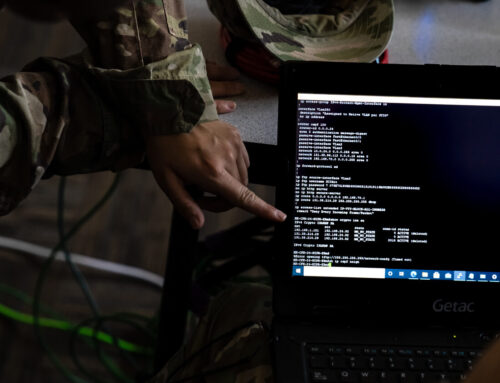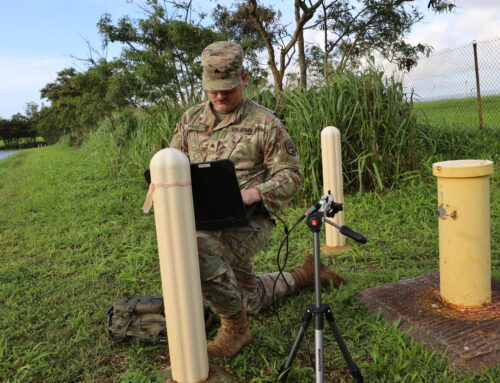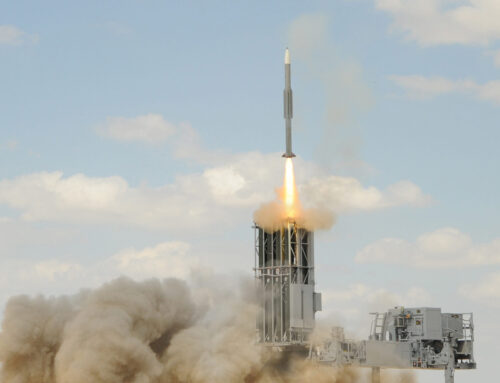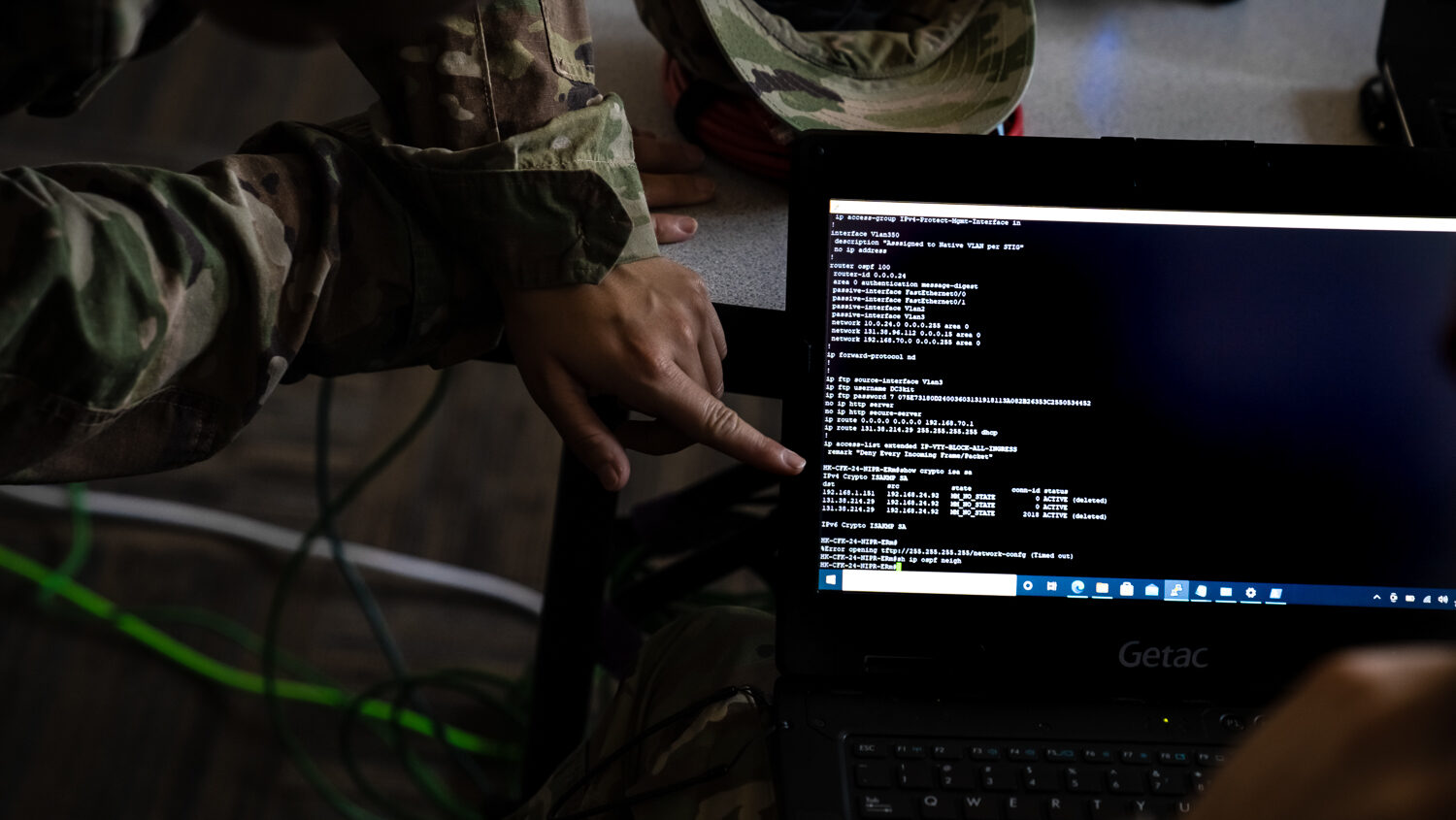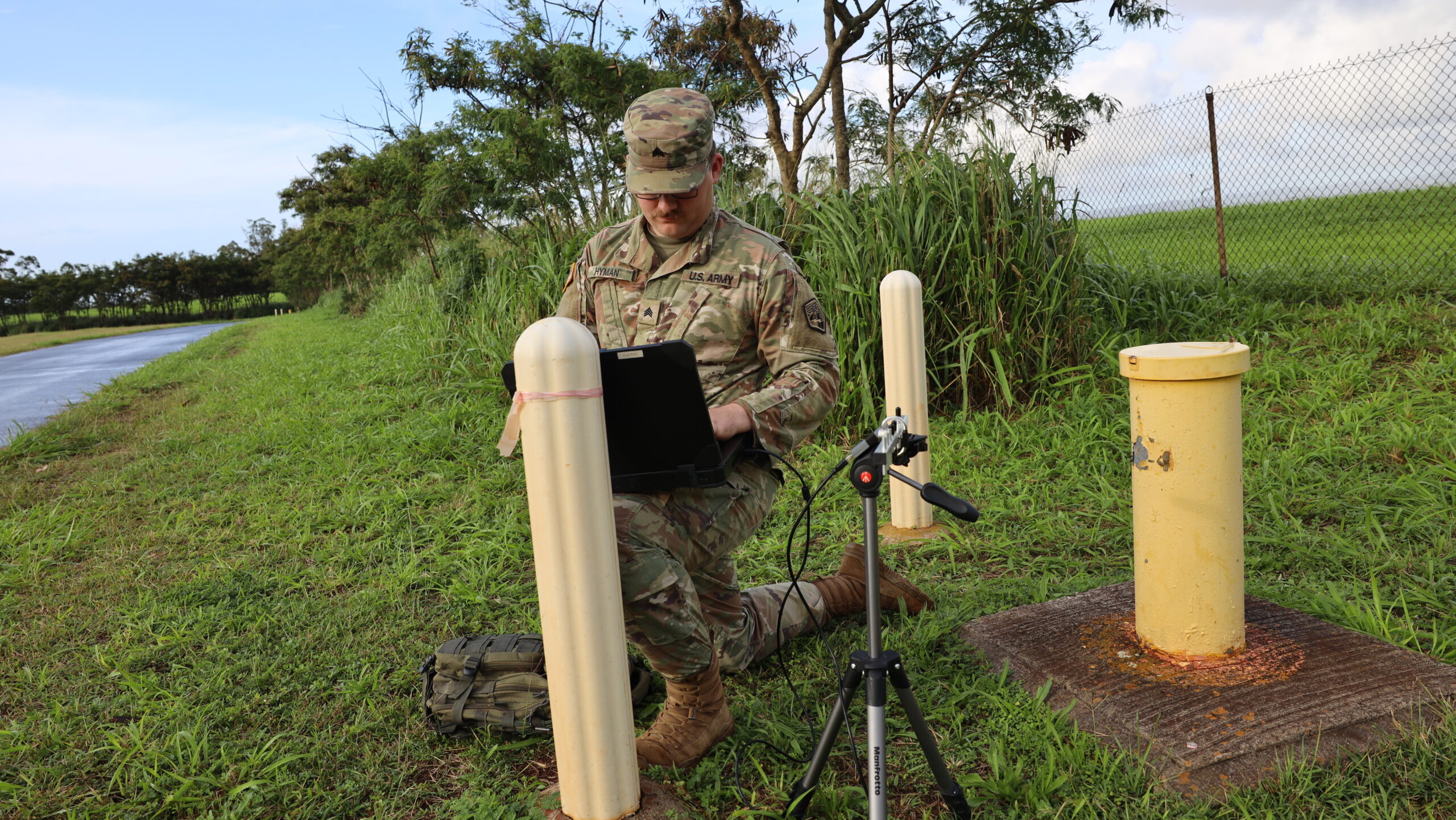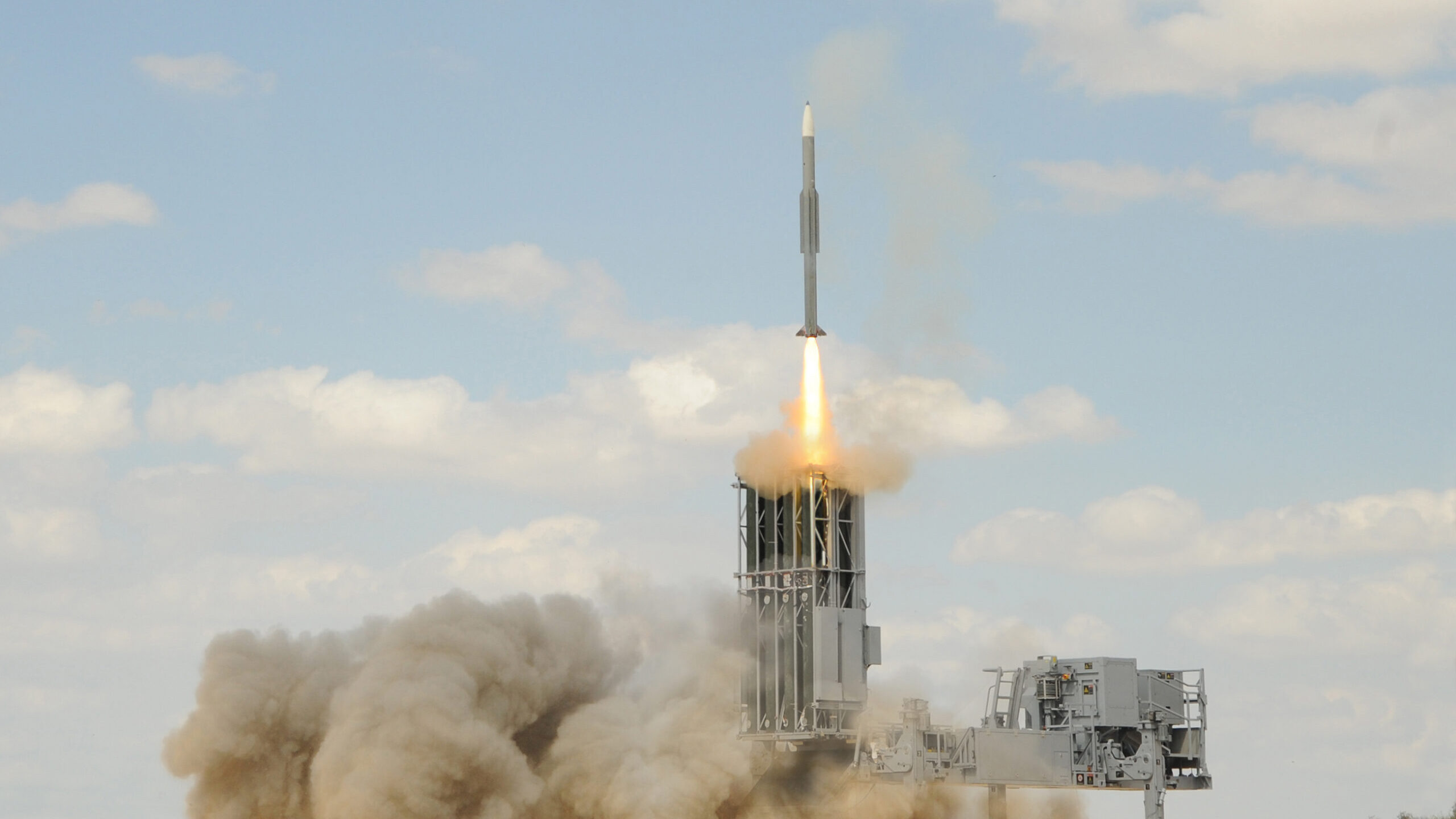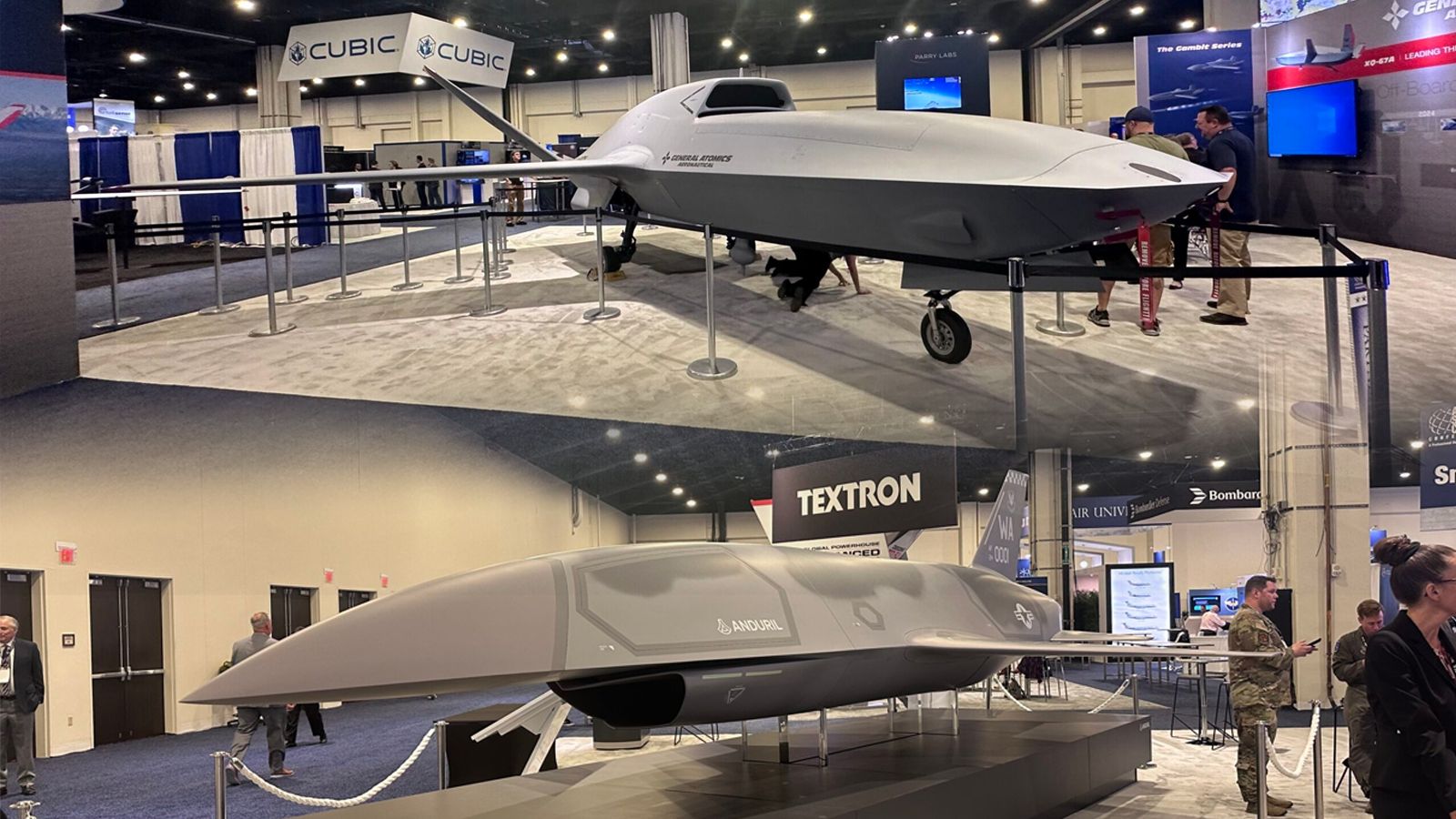PASCAGOULA, Miss. (Jan 26, 2022) — Secretary of the Navy Carlos Del Toro participates in a media interview during a shipyard tour at Ingalls Shipbuilding in Pascagoula, Miss., Jan. 26, 2022. Del Toro is in Mississippi and Alabama to tour shipbuilding facilities, learn more about their capabilities, and discuss ways civilian industry can help strengthen the Navy’s maritime dominance. (U.S. Navy photo by Mass Communication Specialist 2nd Class T. Logan Keown/Released)
WASHINGTON — Defense companies showed no signs of slowing down stock buybacks in the first quarter of 2024 despite a warning from the Navy’s top official earlier this year that firms need to prioritize supply chain and workforce over shareholder returns.
In fact, research firm Capital Alpha Partners found that buy back amounts at defense contractors were higher this financial quarter for all but only four others since March 2011, with the quarter ending December 2023 as the largest single period due to an accelerated buyback by RTX, analyst Byron Callan wrote in a note to investors earlier this week.
It remains to be seen whether a continued trend of share buybacks — a practice in which companies repurchase shares in order to boost the value of stock — stokes further ire from Defense Department leaders, some of whom claim they detract from company’s ability to make internal investments on research and development or in the supply chain.
So far, defense companies don’t seem to be worried. Five of the largest defense primes — General Dynamics, L3Harris, Lockheed Martin, Northrop Grumman, and RTX, which all reported earnings last week — bought back $4.1 billion in shares in the first three months of the year, with General Dynamics, Northrop and Lockheed each repurchasing at least $1 billion, according to Callan. (Boeing, which reported a $3.9 billion free cash burn this quarter as it reels from a safety crisis in its commercial airplanes unit, did not repurchase shares.)
Other firms are following the major primes. For instance, Leidos announced share repurchases of $183 million, more than four times the level of buy backs the firm announced during the same period last year, while HII bought back $62 million in shares, up from $9 million. And it’s not a practice occurring with just the biggest companies: Howmet, a supplier of engine components and aircraft structures, repurchased $150 million in shares, an increase from $25 million in the first quarter of 2023,
General Dynamics CEO Phebe Novakovic hinted that GD could be even more bullish on share repurchases as 2024 progresses, as a potential government shutdown early this year forced the company to act more conservatively.
“The cash performance for the remainder of the year is going to be very strong and we will act accordingly,” she said during a May 24 earnings call.
RELATED: GD chief says Navy’s 1 sub buy won’t impact company short term, but out years less certain
Northrop also increased its planned share repurchases for 2024, which are now projected to be in excess of $2 billion, Chief Financial Officer David Keffer said in a May 26 earnings call.
Share buybacks came back under fire from Navy Secretary Carlos Del Toro, who noted during a February speech that some publicly-traded defense contractors are recording record profits even as the industrial base as a whole struggles with labor and financing challenges, and as industry leaders say they will only invest to increase production rates when they have government contracts in hand.
“While I am very happy for you, you can’t be asking for the American taxpayer to make greater public investments while you continue in some cases to goose your stock prices through stock buybacks, deferring promised capital investments, and other accounting maneuvers,” he said.
Del Toro added the practice “seem[s] to prioritize stock prices that drive executive compensation rather than making the needed, fundamental investments in the industrial base and your own companies at a time when our nation needs us to be all ahead flank.”
In response to questions from Breaking Defense on whether Del Toro’s office was taking steps to deter share repurchases, the Navy did not share specifics but reiterated the secretary’s concerns about the practice.
“As Secretary Del Toro has said, the Department of the Navy believes the best route forward is together with our industry partners,” a Navy spokesperson said. “However, industry cannot rely on — and repeatedly request — the federal government to make substantial investments into industrial base capacity and workforce development while turning around and sending money back to shareholders through stock buybacks and dividends.”
Will Industry Change Course?
While Del Toro’s comments have yet to ignite a wider wave of condemnation among Defense Department leaders over the issue, his criticisms are similar to previous ones aired by officials in past years, including Air Force Secretary Frank Kendall in 2015 during his tenure as the Pentagon’s acquisition executive.
And yet, defense companies don’t seem to be listening — and some analysts say they probably won’t unless the Defense Department takes further action.
“It’s just the market [and] the way the market incentives are set up. For big primes, the best return on investment, in their view is to buy back stock,” said Jerry McGinn, executive director of George Mason University’s center for government contracting. “They have to return money to shareholders, and it’s the best investment for that.”
McGinn added that the Defense Department should instead focus on incentivizing the behaviors it wants to see from industry, such as creating opportunities that would lead to more internal company investments in breakthrough technologies or rewarding good performance with higher profit margins. Those measures could help reduce share buy backs, he said.
Loren Thompson, a longtime aerospace and defense analyst, said that if the Defense Department keeps up its criticism of share buybacks, “the defense industry will scale back because it only has that one customer.”
However, that pressure “would have to be continuous,” he added. “It would have to be a drum beat.”




